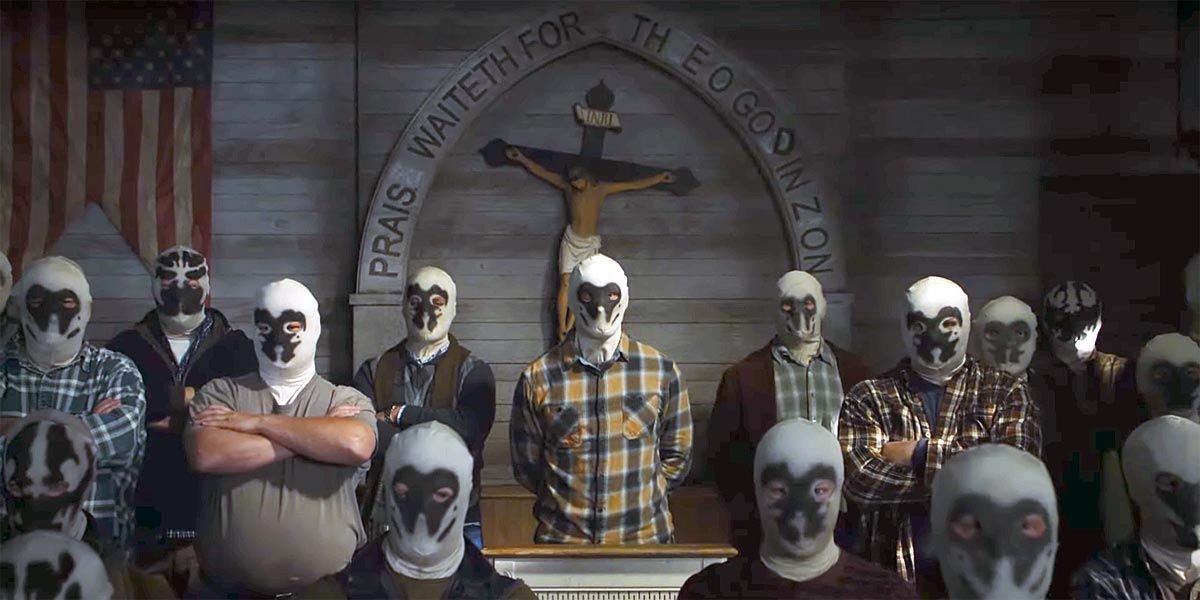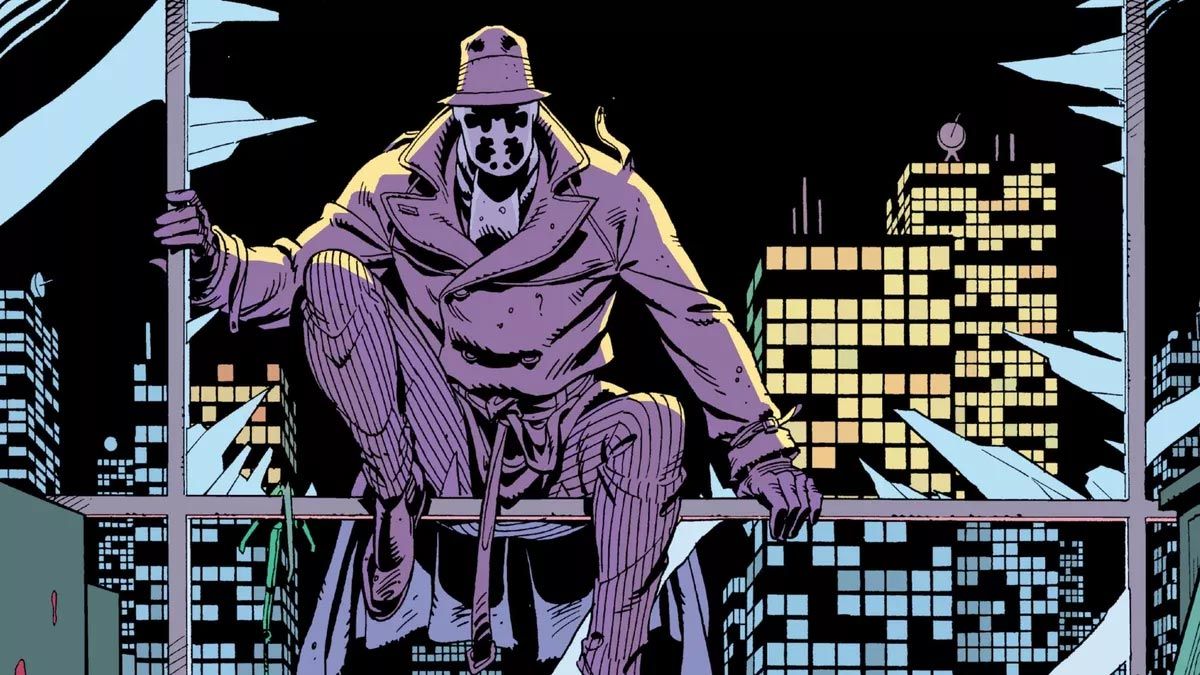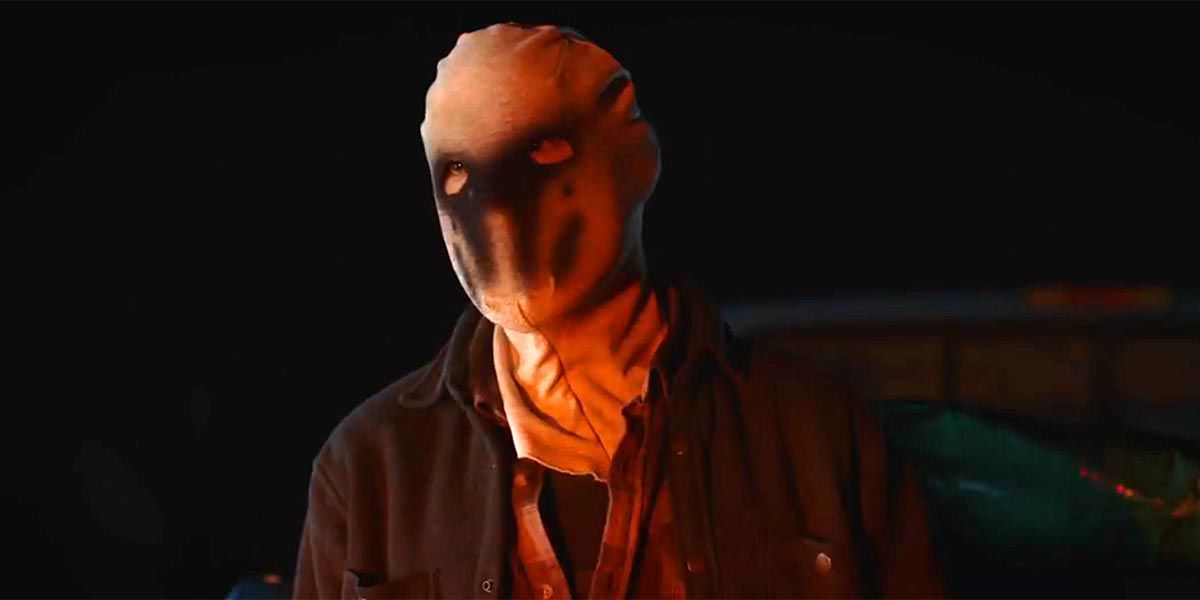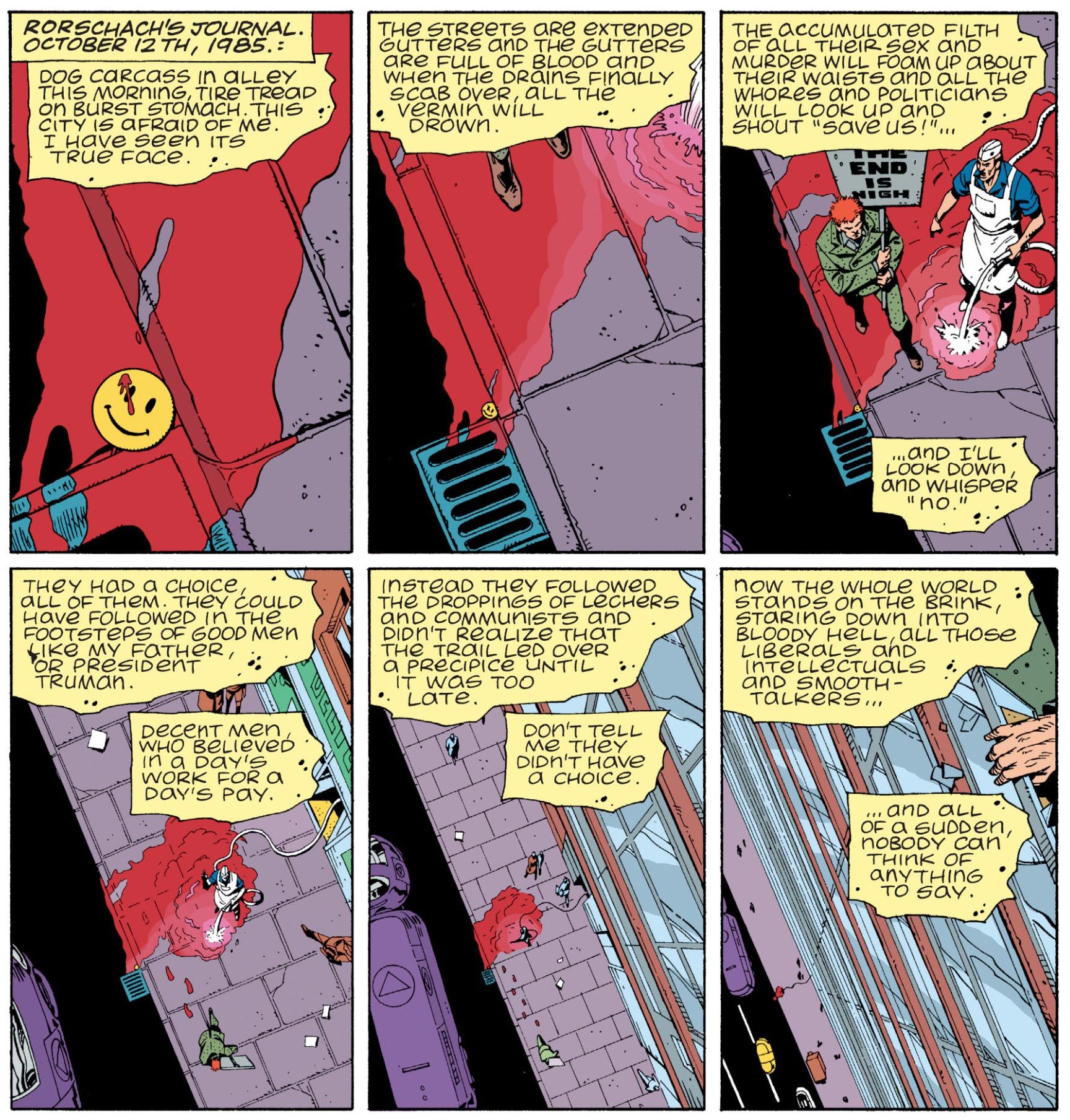WARNING: The following contains minor spoilers for the first episodes of HBO's Watchmen.
There is always a complex relationship between characters embodying cynicism and violence in order to critique it and the audiences that adore them. A perfect embodiment of that in Watchmen was Rorshach, an allegorical blend of black and white that, even in the three decades since his introduction, remains difficult to evaluate. And the new HBO drama, which serves as a sequel to the acclaimed comic by Alan Moore and Dave Gibbons, only makes his legacy more complicated.
There's a good argument to be made for Rorschach being the hero of the source material; he's certainly the most principled character. After the antagonist, Ozymandias, revealed he murdered millions of people in order to save billions from a looming nuclear holocaust, the moral absolutist Rorschach set out to reveal to the world the truth of their salvation, despite such a revelation spoiling the sacrifice that was made. Because he was unwilling to live a lie and accept the moral compromise, Rorschach himself was murdered, but he got the last laugh when his journal detailing the Ozymandias' plot reached a newspaper.
From a distance, the broad outline of Rorschach's actions have the shape of a typical Western hero: capable, self-sacrificing and unyielding. But as one moves closer, those shapes start to form more disturbing particulars. For instance, the newspaper to which Rorschach sent his journal is a right-wing rag reflective of many of the political views he expressed throughout Watchmen. He possessed puritanical views about sex and misogynistic attitudes toward women, and his moral absolutism causes him to dole out violence as a vigilante, with little regard for either the criminal justice system nor the long-term ramifications of his actions.
It is that dualistic nature of Rorschach that the HBO drama teases out in order to explore the full implications. In the premiere episode, "It's Summer and We're Running Out of Ice," more than three decades after Rorschach's death, his legacy lives on in a white-supremacist group the Seventh Kavalry. It's members don masks similar to Rorschach's, mimic the ideas found in his journal for the manifestos they deliver, and display as few scruples about violence as a means to an end. Far from a simple misunderstanding of Rorschach's beliefs, they're an extrapolation to the nth degree of everything that was the very worst in the character.
Perhaps the television series' boldest move is in centering the story so fully and unflinchingly on race politics in America when its source material barely addressed the subject. What's perhaps most interesting is that Rorschach himself was largely unconcerned with race throughout the comic. While brief mentions were made of other superheroes' beliefs, such as Captain Metropolis making racist remarks or Hooded Justice holding sympathies with the Nazi party, Rorschach's conservative views focus more on sexuality and gender issues than on race.
Rorschach's hero-worship of President Harry Truman would even indicate that race was not particularly a major issue. After all, the Democratic president's desegregation of the military established him as far more liberal than either his predecessor and successor. What is interesting about the show's decision to focus so wholly on race politics, and set up a Rorschach-inspired vigilante group as the antagonists, is that it directs the criticism not at Rorschach's conservative politics, but at those who misunderstand and misinterpret the character.
Admiring Rorschach's actions was certainly not the intent of the story or the creators. Moore has said he places himself on the opposite end of the political spectrum from Rorschach, ultimately inspired by what he refers to as Ayn Rand's "white supremacist" philosophy. Rorschach's absolutism was not meant to make him the moral paragon of the story, but to contrast with the consequentialist point of view that his shortsightedness ultimately results in causing more harm than good.
The show explores that disparity beautifully. Rorschach's decision to publish his journal through the right-wing New Frontiersman, for instance, blunted the truths he meant to expose by making them sound like wacko conspiracy theories. The world of the show still believes an alien invasion took place 34 years earlier, resulting in the deaths of millions, and the biggest consequence of Rorschach's publication seems only to be the Seventh Kavalry that idolizes him. Far from saving the world in any kind of way, Rorschach instead inflicted upon it another terrorist organization.
Of course, if the world were really that simple, this would hardly be a Watchmen story. The Tulsa, Oklahoma, police combating the Seventh Kavalry hardly seem morally spotless themselves, and if the show were to truly present "racists" and "police" as wholly opposed polarities, it would do a great disservice to the historical precedent to the counter. There is still much left to unfold in the TV show's story, but if it's anything as good as its source material it will know better than to treat these issues as black and white.
Developed by Damon Lindelof, HBO's Watchmen stars Jeremy Irons, Regina King, Don Johnson, Tim Blake Nelson, Louis Gossett Jr., Yahya Abdul-Mateen II, Tom Mison, James Wolk, Adelaide Clemens, Andrew Howard, Frances Fisher, Jacob Ming-Trent, Sara Vickers, Dylan Schombing, Lily Rose Smith and Adelynn Spoon. The series airs Sundays at 9 p.m. ET/PT.




